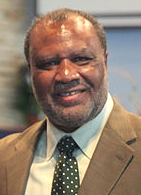
MESQUITE, Texas (BP) — The spirit of humility is often easily overlooked by Christians and seldom celebrated by the world. “Gunsmoke,” an old western TV series, has two of my favorite personalities who consistently exemplify such a spirit: Deputy Marshal Festus Haggen and his donkey Ruth.
Festus plays the role of a humble, honest, kindhearted, goodwill person riding a lowly big-eared mule or donkey. The relationship between Festus and Ruth, in my opinion, is closer than any cowboy and his horse on TV.
Festus’ willingness to tolerate and contend with the characteristics of his donkey, who at times is stubborn, unruly and senseless, makes the viewer wonder why he doesn’t exchange her for a horse. When the donkey is at her worst is when Festus’ humility serves her the best, and the TV audience appreciates him most.
Humility is a personality trait that is difficult to maintain but makes the believer most resemble the Savior. Festus valued Ruth, talked to her and attentively provided for her needs, and yet he looks disgraced and unimportant and at times foolish riding next to Marshall Matt Dillon on his big beautiful, well-groomed buckskin horse named Buck.
Riding on the back of a donkey makes the rider look stupid and out of place because donkeys are small, slow and don’t maneuver well. Traditionally, riding on a donkey was the symbol of a king who comes in peace according to Middle Eastern culture. Riding a donkey made a king look defenseless and peaceful regardless of his military might.
How amazing it is to know the King of Kings and Lord of Lords in humility preferred to ride a lowly donkey and not a beautiful stallion to one of the most celebrated events of His life. With a steadfast mind in modeling humility, Jesus inaugurates the standard of Christian humility to the world. As Jesus rides into Jerusalem, He fulfills the Scripture given to the prophet Zechariah: “Look, your King is coming to you; he is righteous and victorious, humble and riding on a donkey, on a colt, the foal of a donkey” (Zechariah 9:9).
The crowd recognized the Messianic sign as Jesus came riding the donkey. “A very large crowd spread their clothes; others were cutting branches from the trees and spreading them on the road” (Matthew 21:8). This multitude of men, women and children sang and celebrated with joy and excitement the Lord’s triumphant entry. They hailed Jesus as their King, shouting, “Hosanna!” and saying, “Blessed is he who comes in the name of the Lord!” (Matthew 21:9).
Yet this renowned celebration of expressive shouts, palm trees and coats laid in the road for Jesus to pass over would not have happened if the people knew He came to provide salvation for the sins of the world. Jesus must have been humbled and sad to know the people had missed the real reason He now entered Jerusalem. Receiving the accolades from so many who were confused about the real purpose of His mission must have been overwhelming for a God of integrity. Christ knew the praise, cheering and celebrating coming from the crowd was about their physical deliverance and not forgiveness of sins. Christ was forced to receive their words of gratitude for a task that He was not going to accomplish at that time in history. The Jewish people were looking for a military leader in a king who would bring physical freedom. They believed their king would overthrow the Roman government and provide deliverance from Caesar’s cruel and ungodly laws.
As the masses celebrated, Jesus humbly rode the donkey. Christ knew this would be the last week of His earthly life, and by Friday He would be crucified on a cross.
The original Palm Sunday celebration was filled with shouts of praise based on the world’s idea of victory and the belief that King Jesus would defeat the Roman Empire. Today we know better and celebrate the steadfastness and humility of Jesus to establish success in this life over sin and temptation.
On this Palm Sunday, let us celebrate His humility to ride into Jerusalem and provide His followers forgiveness of sin. “And when he had come as a man, he humbled himself by becoming obedient to the point of death — even to death on a cross” (Philippians 2:8). We celebrate our Lord and God who humbled Himself to the cross as a consequence of our sins.
We celebrate Palm Sunday because we know next Sunday that Jesus will resurrect from the grave and reward His followers with eternal life.

















